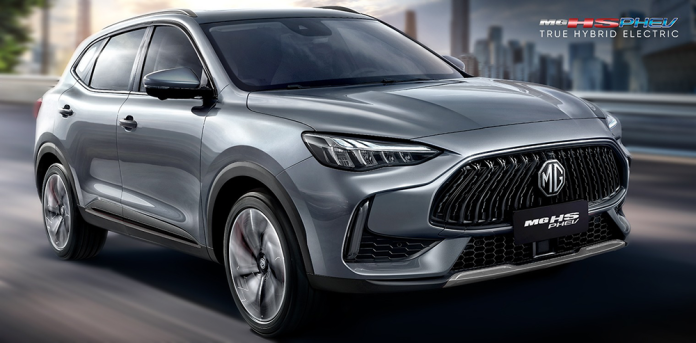Pakistani car buyers have bought more than 35,000 SUVs at a price above Rs 8.0 million in the last year, and to save the fuel cost, 50% customers preferred Hybrid Vehicles. But Pakistani car buyers are buying expensive HEV SUVs compared to conventional petrol versions. This was revealed by Syed Asif Ahmed, General Manager Marketing Division at MG, while talking to media.
Asif informed that MG has sold more than 16,000 vehicles in Pakistani market so far out of which approximately 2000 were Plug In Hybrid vehicles (PHEV) as Pakistani customers are realizing the true economic benefit of PHEV as it’s a perfect urban mobility option for the urban consumers.
He says despite the changing trend of converting to PHEV from HEV Pakistani consumers have just one choice in the shape of MG HS PHEV, although having a better technology but still placed lower than most hybrids in Pakistan.
Asif said that MG leads specification leadership in Pakistan. All automakers now follow the global specs MG introduced in MG HS in both CBU & CKD. MG vehicles have crossed approximately 350 million miles since its launch in Pakistan in 2021, and MG HS has successfully tested for Pakistan’s fuel, terrain (road), and weather conditions, he added.
Asif said the vehicles in Pakistan are still expensive. Globally, hybrid vehicles deliver financial value when their purchase price does not exceed more than 10% of the cost of an equivalent petrol vehicle.
However, this benchmark is not practised in the Pakistani market. Here, the price gap between hybrids and their petrol counterparts is significantly wider averaging around 45%.
For example, a C SUV hybrid vehicle costs up to Rs 12 million, while similar C SUV conventional petrol cars cost Rs 8.0 million. In Pakistan, the difference of price between hybrid and conventional petrol cars is approximately 4.0 million in the C SUV category.

While hybrids generally offer a fuel economy advantage of 8–10 km per litre compared to petrol vehicles, which equates to a Rs 35/km operational cost saving, the payback timeline is lengthy.
To recover the additional Rs 4.0 million, a consumer would need to drive the hybrid for approximately 115,000 km. Assuming an average annual mileage of 15,000 km, this payback period extends to over 7.5 years.
Given these figures, the first owner of the vehicle is unlikely to fully recoup the higher upfront investment during their typical ownership cycle. This raises critical questions about the cost-effectiveness of hybrids in Pakistan.
In terms of technology, hybrid vehicles are only efficient if used in stop & go condition in city drive. A hybrid system only engages at low speeds around 40 – 60 km per hour. On long routes at high speed, the fuel efficiency drops to the same as a gasoline car. Hybrids are environmentally friendly is more of a myth than fact.
The periodic maintenance of Hybrid cars is also the exact same as Petrol cars making its total cost of ownership higher than petrol due to high acquisition cost. A Hybrid car is only viable if the fuel saving net off the high purchase price in less than 3 years.
EV is totally fuel free and requires maintenance after 15 months making it the most efficient mobility option available. However, high acquisition cost and lack of charging infrastructure inhibit large scale EV adoption.
Currently, as per the global trends the PHEV – Plug In Hybrid vehicles offer the best value for money. It offers an EV only range and Hybrid mode also to save from range anxiety.


